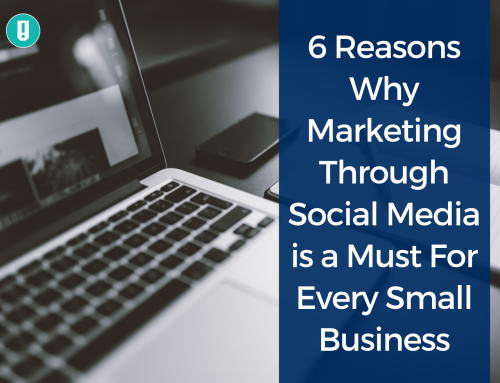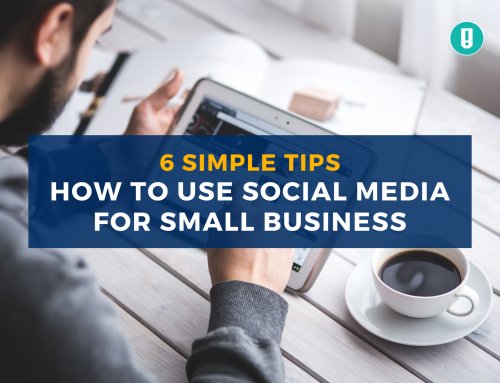Customer loyalty is at the core of building a growing, profitable and sustainable ecommerce business. But cultivating loyalty is never easy especially now when the COVID-19 crisis has disrupted businesses around the world in multiple ways. Still, there’s never been a time when strengthening customer loyalty has been more important than now. Numerous factors contribute to ecommerce customer loyalty but few are more critical than reliable fulfillment.
Order fulfillment is the actualization of promises you make to your customers. It’s where the rubber meets the road. This is where a great ecommerce business distinguishes itself from an average one. It’s a distinction that becomes more pronounced during a crisis like the COVID-19 pandemic. Fulfillment strategies built on quicksand rapidly unravel as those that are robust, well-thought-out and designed to surmount a widespread disruption, stand out.
You must prioritize reliable fulfillment during crisis times. Here’s why it’s so crucial for customer loyalty.
1. Exceed Expectations
At the height of the COVID-19 pandemic, buyers had to brace for delays and other hurdles that affected the fulfillment of their orders. Thanks to curfews, lockdowns and social distancing rules, there was an overarching expectation in the air that things may not always go according to plan.
By crafting a fulfillment strategy that will withstand crisis-induced hurdles it will go a long way toward stimulating sales over the long term. Customers who see that your business is one they can count on during a crisis will think of you first whenever they want to order again. As a plus, exceeding expectations reduces the instances of shopping cart abandonment.
2. Faster Delivery
Speed of delivery is a key component of customer satisfaction. Late delivery is a definite no-no but so is shipping that is perceived as slower than what customers are accustomed to from your competitors. Many buyers don’t mind paying a premium for faster delivery. Amazon’s hugely popular 2-day shipping has demonstrated the faster you can get orders into buyers’ hands, the more likely they are to return.
In case you still aren’t sure whether your customers are going to embrace faster shipping, consider doing it on a promotional basis first. This will not just test market reaction but also gives you the opportunity to evaluate the costs and iron out any speed bumps before you proceed to make it a standard option.
If you can provide quick delivery for only certain items on your store, there’s no harm in highlighting them via ‘fast shipping’ tags. To pull off consistently fast delivery times though, you have to work with a dependable 3PL company that can guarantee your delivery promises.
3. An Accommodating Return Policy
You could have by far the best product in the market but even that will not shield you from returns. Returns are an integral part of an ecommerce business much more than brick and mortar retail. Your buyers only get to experience the product once it arrives. It’s possible that for one reason or another, their initial expectations aren’t met. Certain product categories have a higher likelihood of return. Apparel, for instance, is at an above average risk of return due to fit and size challenges.
No business wants order returns but you must be careful not to develop a return policy that’s punitive and unfriendly. Instead of reducing your returns, this will just depress your sales. Customers are quite keen on reading return policies and won’t hesitate to switch to a competitor if they deem your policy inconveniencing.
You should instead address the root cause of returns by availing more product information, sharing user-generated photos and publishing reviews of the product. That way, the buyer will have a more realistic feel of what to expect. Focus on getting buyers to purchase the product that’s most suitable for their needs. Use customer feedback to constantly check the reasons for returns so you can fix them fast.
Make returns as rare as possible and a friendly returns policy won’t affect your bottom line much.
4. Follow Up and Regular Engagement
Follow ups are vital for long term customer loyalty. And in the midst of the pandemic, following up will endear you to customers in a way they’ll remember long after the crisis is over. Not all dissatisfied customers will call immediately or send you an angry email. The ones you should be most worried about are the quiet, dissatisfied as these are bound to switch to your competitors without letting you know.
So a few days after the customer gets their order, drop them an email and request that they submit a review. If they are happy, encourage them to take a picture and tag your brand on social media. Following up allows you to obtain feedback from buyers proactively. Strengthen the relationship by regularly sending emails that highlight products and offers most suitable for them.
5. Tackling Unexpected Events
Order fulfillment won’t always go according to plan. It’s even more unpredictable at a time of widespread crisis like the COVID-19 pandemic. Things are in a constant state of flux and not everything is within your control. Shipments may get lost, damaged, credit cards charged twice and other events that could frustrate your customers.
Your most elaborate planning cannot completely prevent fulfillment mishaps. But how you handle these unexpected incidents is just as important to customer satisfaction as preventing them. Most buyers understand that there will be fulfillment issues once in a while. Nevertheless, they will be drawn to your brand if you consistently demonstrate swift response and conclusive resolution when faced with situations. It’s a moment for your business to showcase its problem-solving capabilities.
Develop and regularly review internal policies that address how to rectify slip-ups. Make sure all your staff is on the same page. Your responses could include offering the customer free delivery, a discount, a personalized gift or a handwritten note. Prioritize the customer experience when things go wrong and don’t hesitate to acknowledge your mistakes.
Make Your Brand Unforgettable
Ecommerce businesses don’t enjoy some of the perks that come with a brick and mortar store. There’s no face-to-face engagement with customers and no ability for buyers to try out your product. Therefore, you have to go hard on all other aspects that affect the customer experience.
Since you probably have thousands of ecommerce stores offering similar products to yours, you must see online shopping as more than just compelling the customer to hit the buy button. To thrive in the hypercompetitive space that ecommerce is becoming, making each order fulfillment memorable can cultivate a customer loyalty that lasts.
—
Will Schneider is the founder of insightQuote, a match-making service for B2B services, and writes informative posts about fulfillment services at FulfillmentCompanies.net. He is passionate about helping businesses find the right solutions to improve their operations. When not working, Will enjoys coaching youth basketball.







Leave A Comment